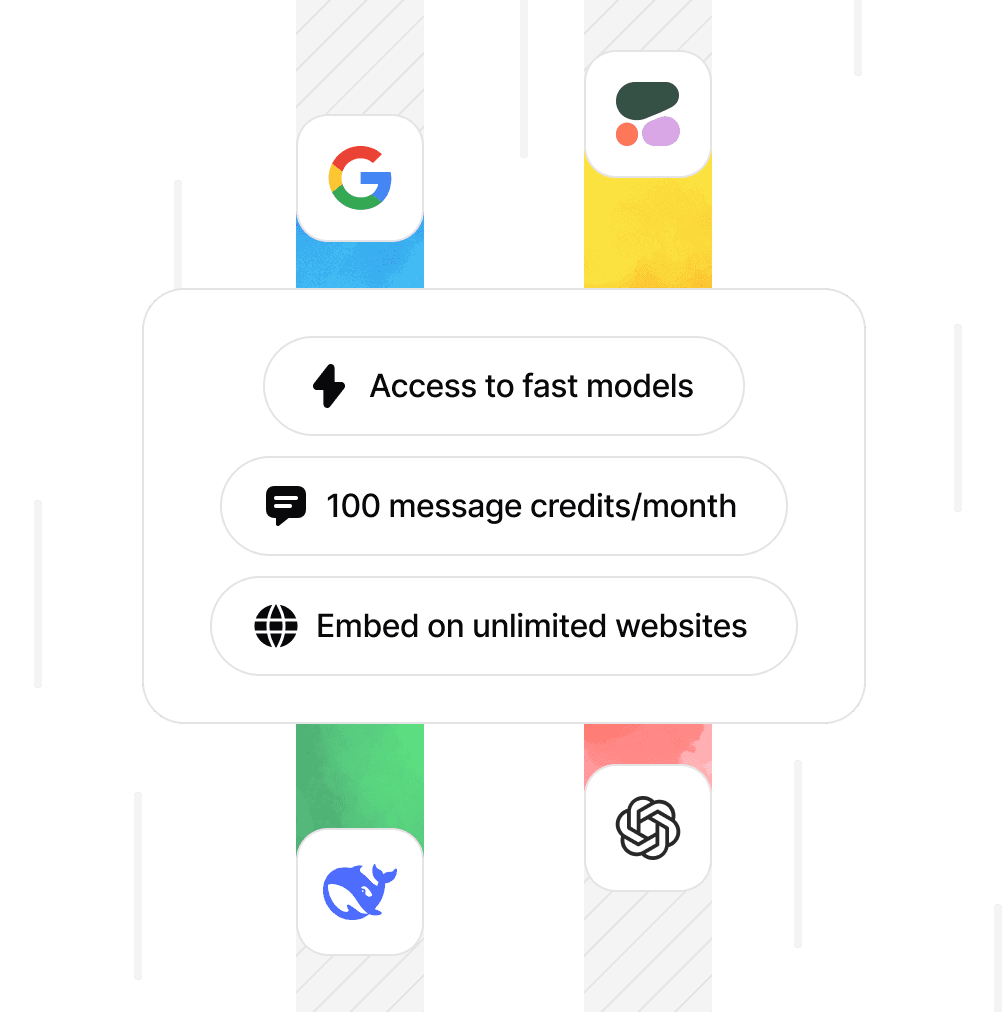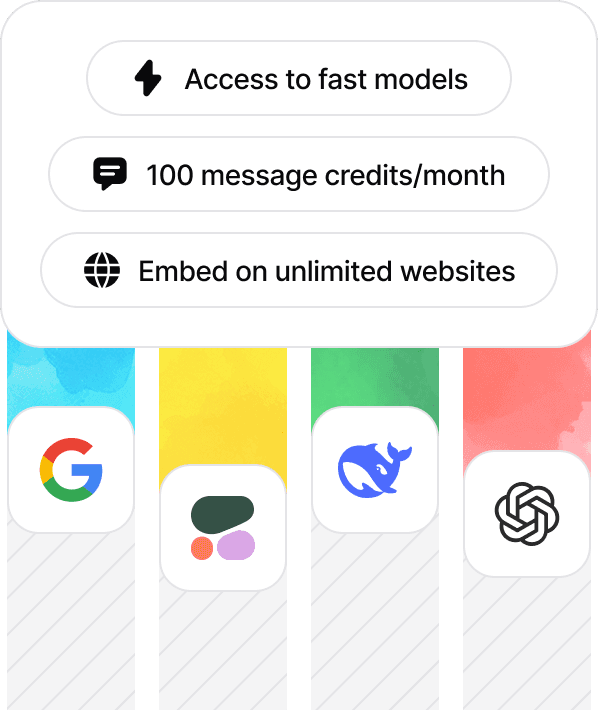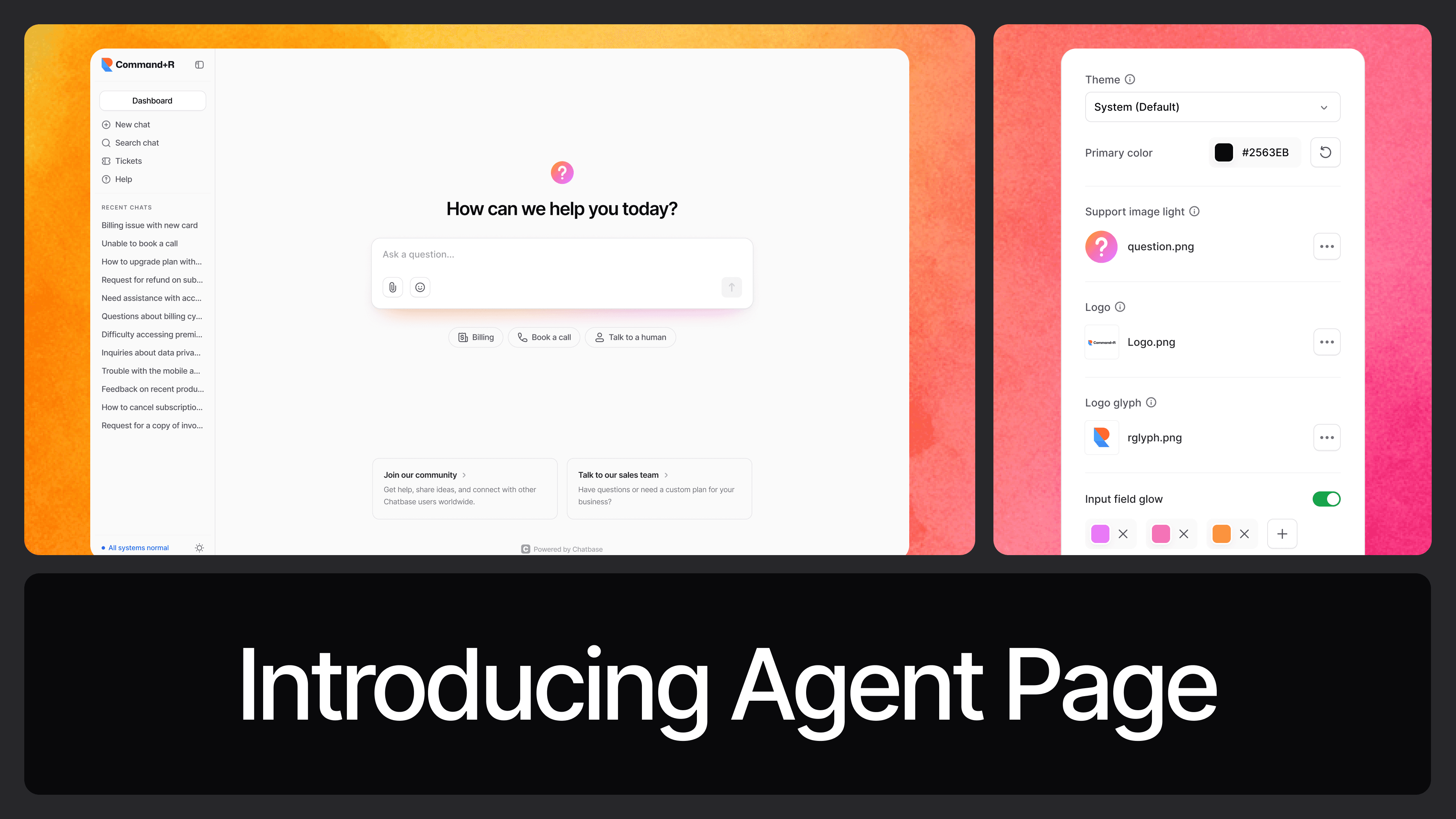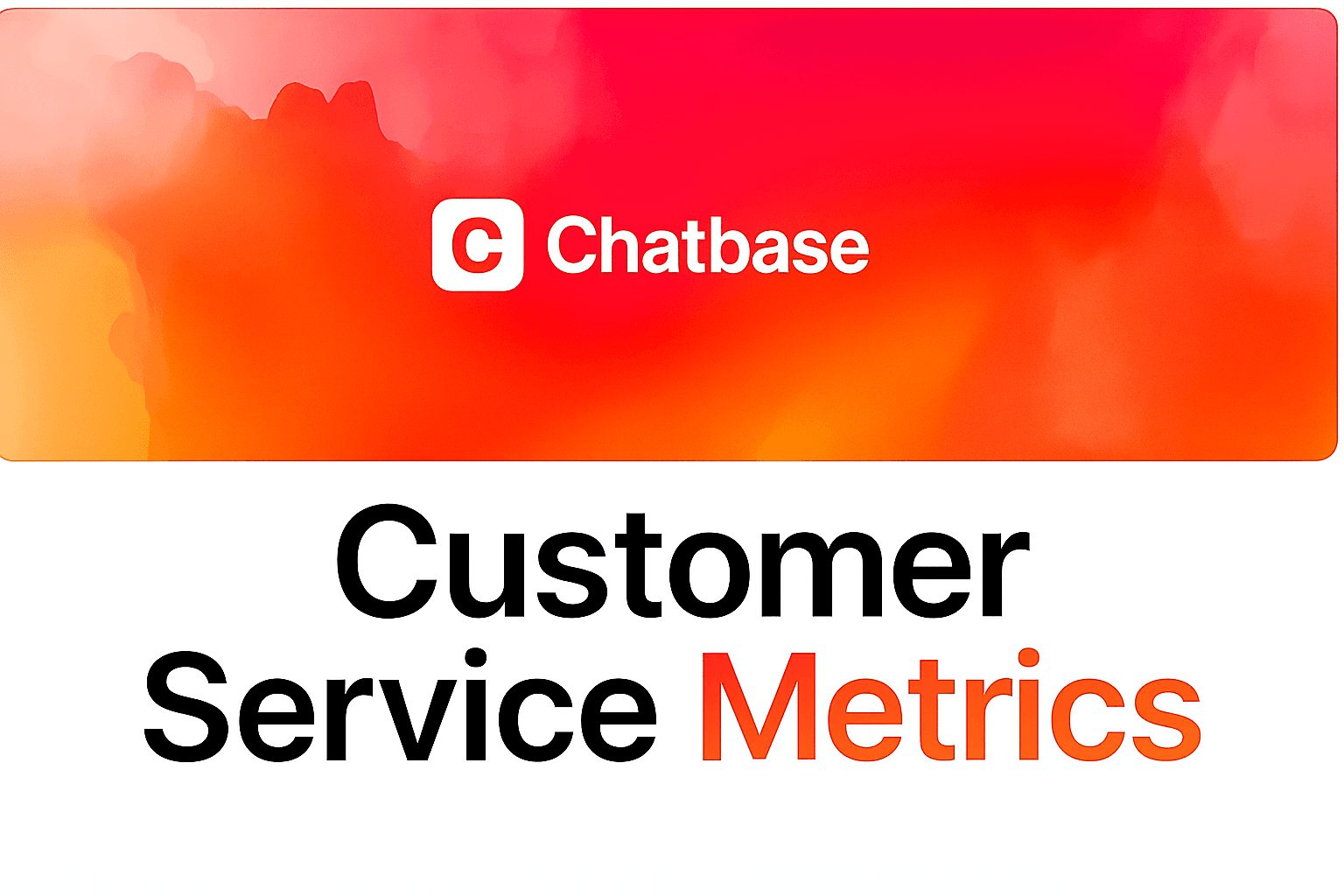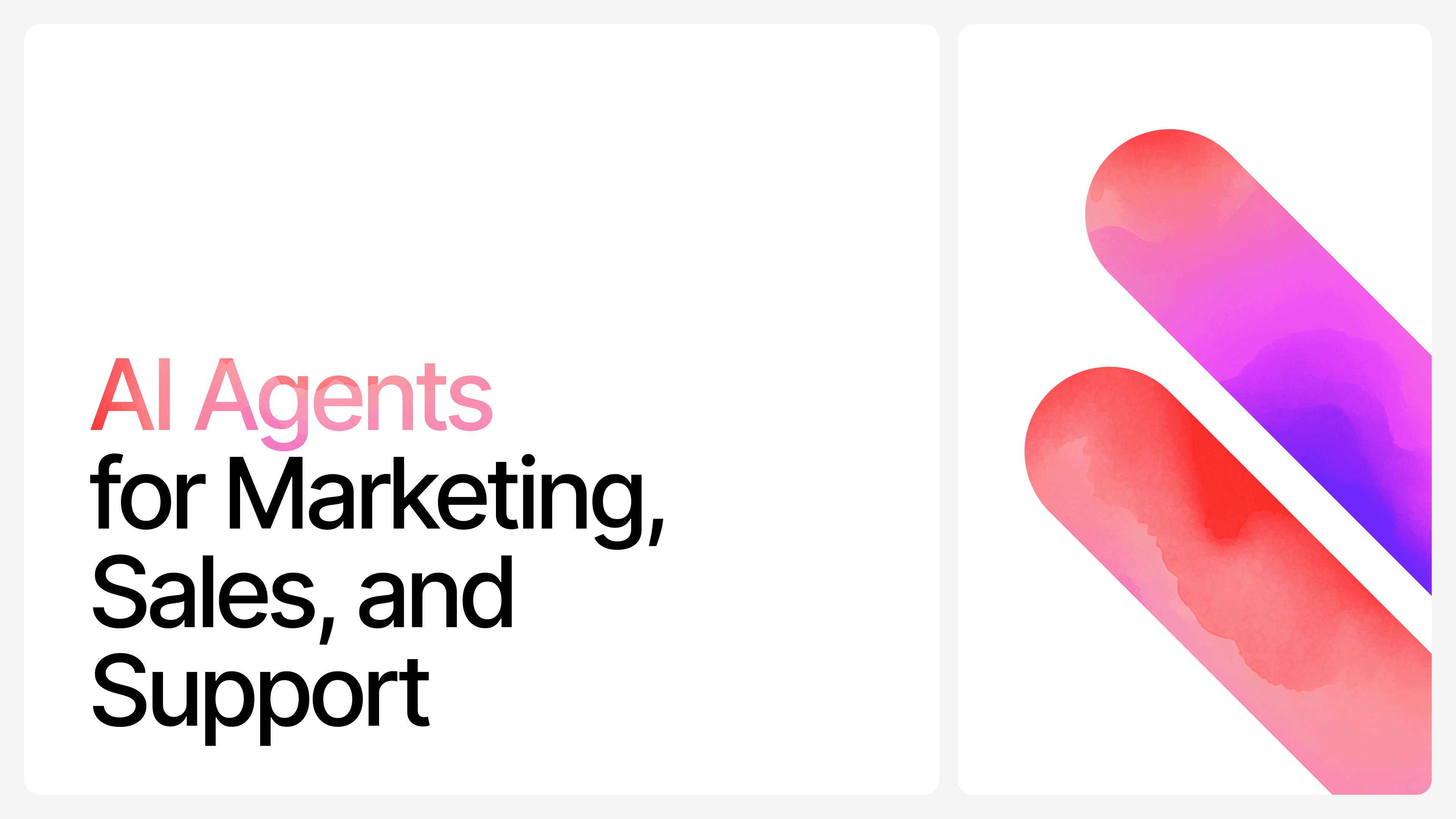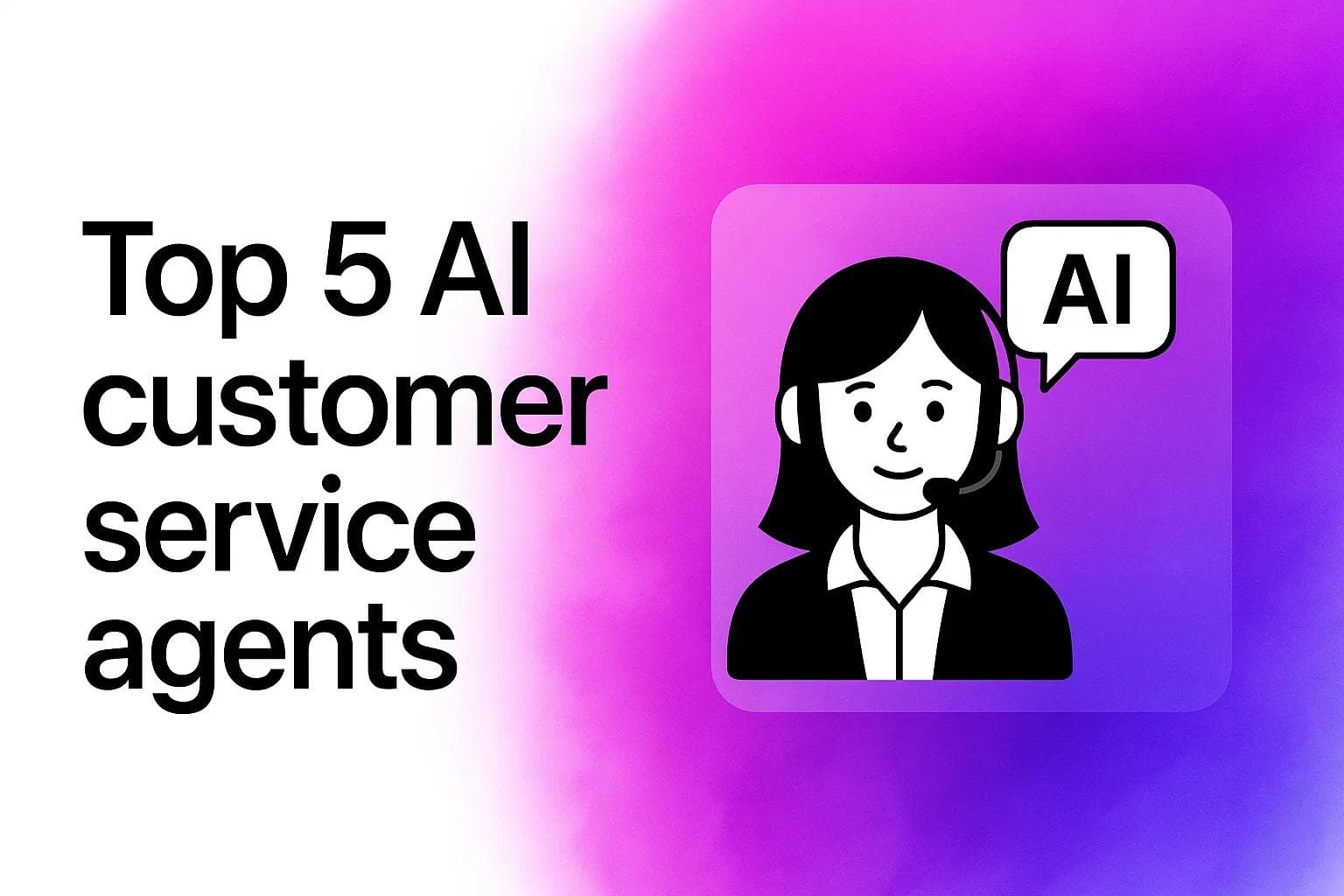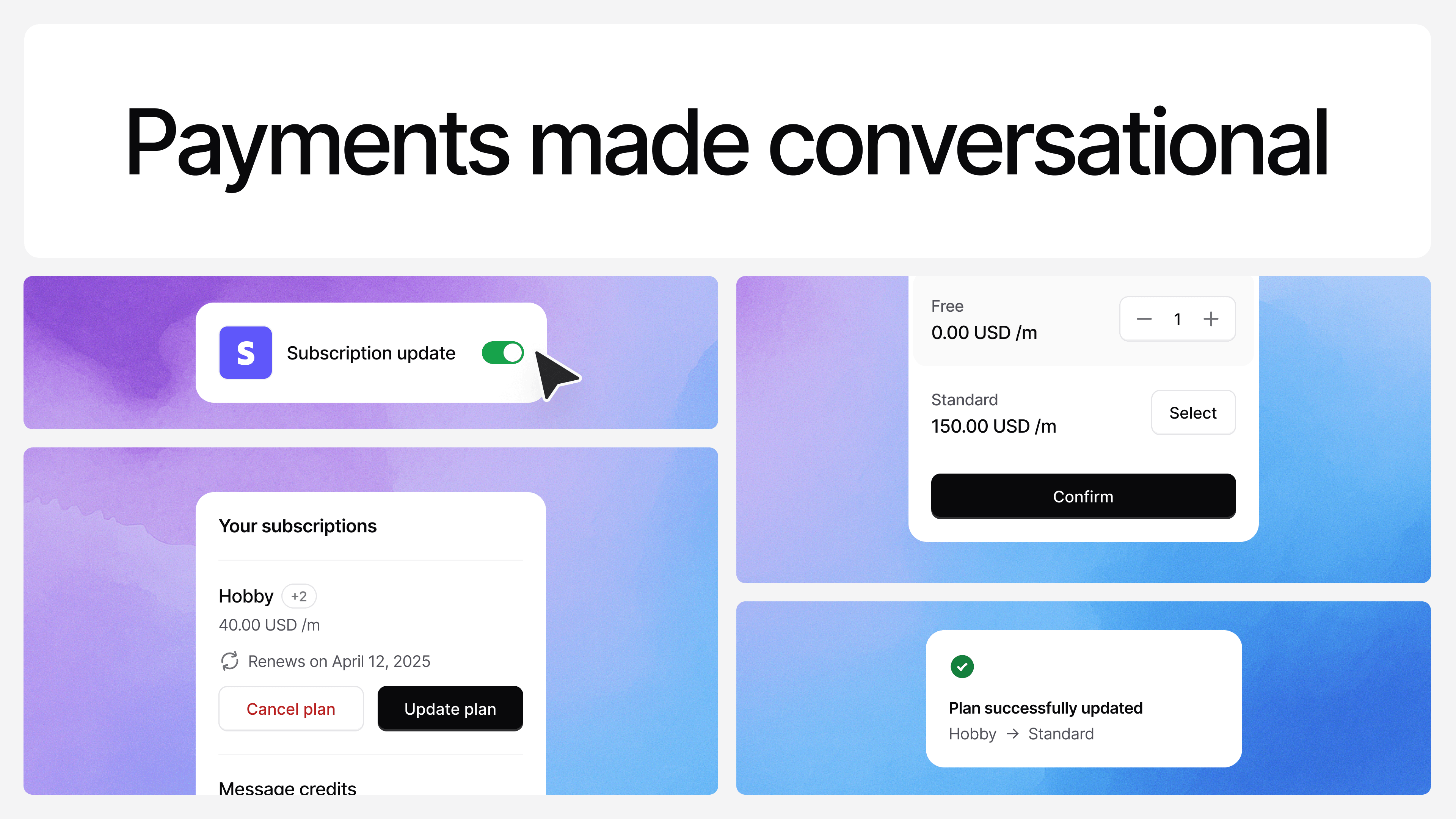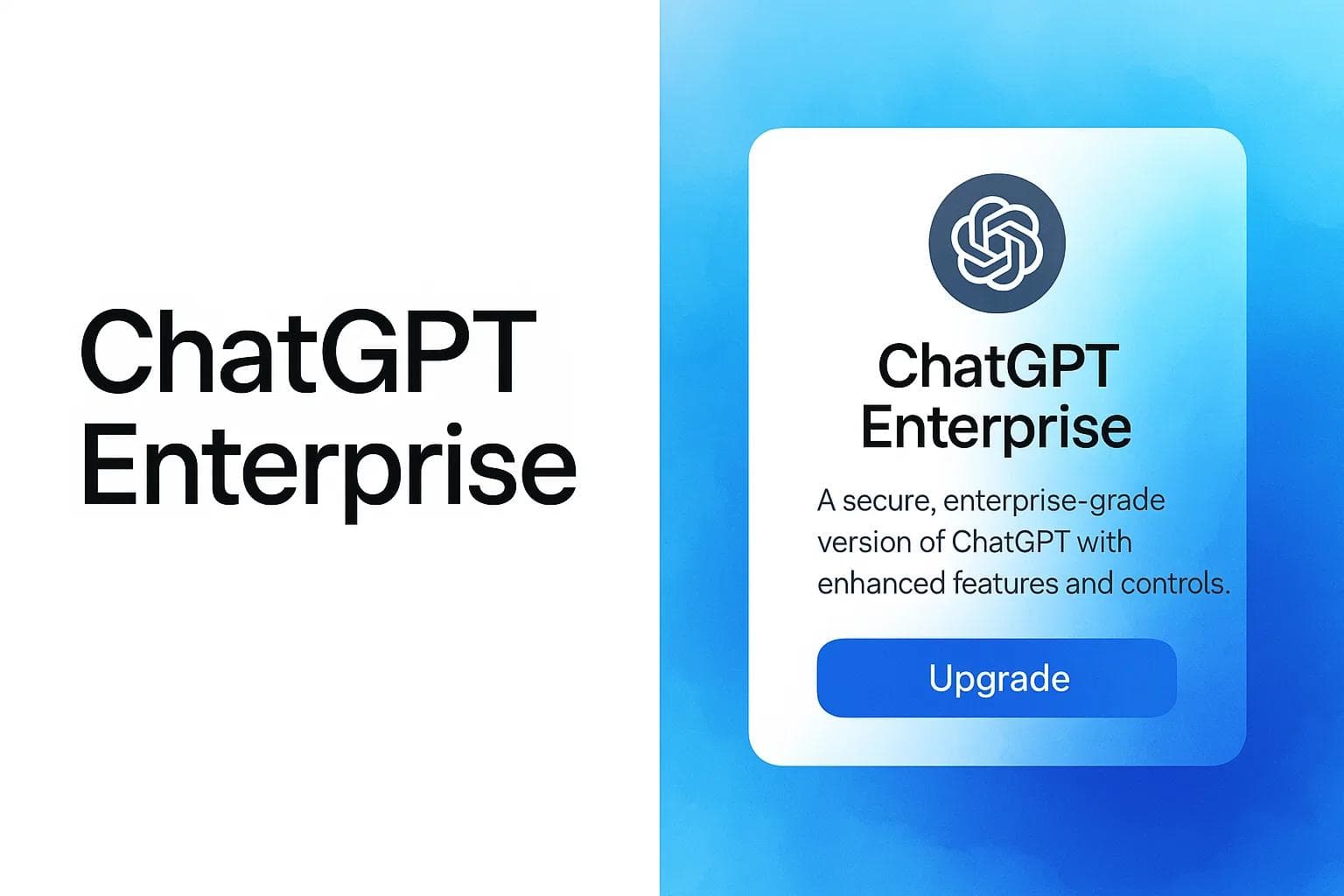B2B Chatbots: Benefits, Uses and Examples
Max T
Oct 21, 2024
8 min read
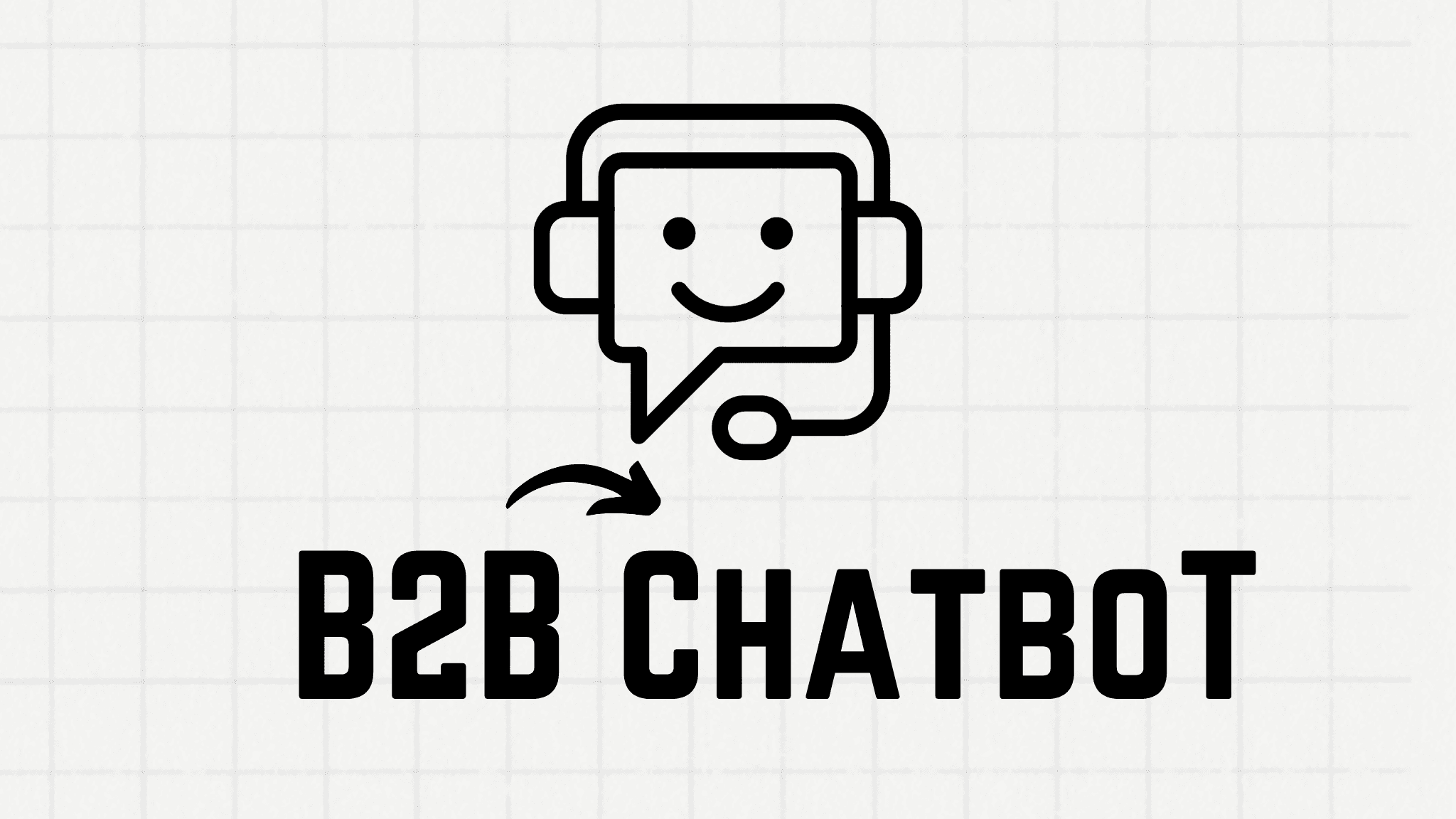
Are you drowning in questions from partners, suppliers, and customers? If so, you’re not the only one. Managing communication in B2B can be a heavy load. The constant flow of emails, calls, and messages can easily overwhelm your team, making it hard to focus on bigger tasks.
But what if you could automate those repetitive conversations and let your team handle more important work? That’s where AI-powered B2B chatbots come in. These chatbots can take over the routine communication on your B2B website, giving your team time to focus on what really matters.
More and more businesses are adding B2B chatbots to their websites. Why? Because they help improve customer service, build stronger relationships, and boost business loyalty. And the best part? It’s simple and effective.
Why Businesses Are Turning to B2B Chatbots
The numbers don’t lie. Businesses are quickly adopting B2B chatbots to simplify communication. According to a Statista report, about 30% of B2B marketers already use AI-powered chatbots. That’s a solid chunk of the market, showing how fast companies are embracing this tool to streamline their operations.
Even though the trend is still growing, the results are impressive. In fact, 66% of American B2B marketers have reported significant growth in lead generation after implementing chatbots. Of those, 26% saw a 10-20% increase in leads, 25% experienced a 5-10% boost, and a lucky 15% reported more than a 30% surge.
If you’re still underestimating the value of a B2B chatbot, think again—your competitors might be outpacing you while you’re stuck dealing with endless messages manually.
Key Benefits of AI-Powered B2B Chatbots
So, what can a B2B website chatbot actually do for your business? Here are some major benefits that will make you wonder why you didn’t jump on this earlier.
1. 24/7 Availability and Instant Responses
Picture this: It’s 2 AM, and a key supplier has an urgent question. Normally, they’d have to wait hours for your team to respond. But with a B2B chatbot for your website, they can get immediate assistance—even while your team is asleep. The chatbot can:
- Acknowledge the issue and provide a calming response.
- Collect key details about the problem to narrow down potential solutions.
- Offer quick fixes through FAQs or troubleshooting guides.
- Forward the issue to your human support team, so they’re ready to tackle it first thing.
This kind of around-the-clock support not only keeps your clients happy but also shows them you’re always there when they need you, strengthening those business relationships.
2. Automated Data Collection and Analysis
In the B2B world, understanding your customer’s needs is everything. Instead of spending hours on surveys and questionnaires, why not let an AI B2B chatbot gather those insights naturally?
While interacting with your website chatbot, businesses can:
- Collect direct data by asking key questions about the customer’s challenges, budget, or needs.
- Analyze tone and sentiment to understand how the customer feels—whether they’re frustrated or excited.
- Track user behavior during the conversation, highlighting which parts of your business interest them the most.
This data can offer you a goldmine of insights, allowing you to tailor your offers, improve your strategies, and stay one step ahead of the competition.
3. Streamlined Repetitive Tasks
Your sales team is built for closing deals, not answering the same basic questions over and over. But repetitive tasks like answering common queries or guiding prospects through standard processes can eat up their valuable time. That's where a B2B website chatbot comes in handy.
AI-powered chatbots can automate repetitive tasks such as:
- Answering FAQs
- Guiding users through your product or service offerings
- Scheduling meetings or demos
By letting chatbots handle these tasks, your team can focus on high-impact activities like building relationships and closing sales. Plus, automation doesn’t just save time; it also saves money, making your operations more efficient.
4. Cost-Effectiveness and Scalability
Running a complex B2B business could come with high customer service costs. Hiring and training staff, paying salaries, and maintaining an around-the-clock support team can strain your budget. An AI-powered B2B chatbot offers a more cost-effective solution.
With chatbots:
- You don't need to worry about overtime, benefits, or onboarding.
- Chatbots can handle multiple customer interactions simultaneously without fatigue.
- They can scale effortlessly as your business grows, handling more inquiries without increasing your headcount.
By reducing the need for human agents, chatbots help cut down operational costs while providing fast, efficient service—no matter the time of day.
5. Increased Retention Rates
In B2B relationships, keeping clients happy is crucial. But sometimes, a repeat customer might suddenly go silent. Maybe they’re unhappy with something, or they’ve found another supplier. How do you bring them back before it’s too late?
A B2B website chatbot can help by engaging with clients proactively:
- Sentiment analysis: They can detect negative tones or frustrations, allowing your team to intervene before it becomes a bigger problem.
- Personalized interactions: Using data from past interactions, chatbots can offer tailored recommendations or solutions, making clients feel valued.
By keeping the communication open and offering help early, chatbots can improve customer satisfaction and retention rates—turning silent customers into loyal ones again.
6. Automated Lead Generation
Are you tired of spending hours sorting through leads? Imagine having a tireless virtual assistant that can generate and qualify B2B leads for you—day and night. B2B chatbots can help with this.
Here's how they work their magic:
- Conversational lead capture: Chatbots can chat with website visitors, asking simple questions to gather information while keeping things friendly and engaging.
- Automated lead qualification: Instead of manually sifting through potential leads, chatbots can ask targeted questions to identify the right fit for your business, saving you time and effort.
- 24/7 lead nurturing: Once a lead shows interest, chatbots can follow up with helpful content, like case studies or product info, keeping your brand fresh in their minds.
By automating lead generation, your sales team can focus more on closing deals and building strong relationships, leading to increased revenue for your B2B leads business.
The Best B2B Chatbots for Your Business
Ready to adopt a B2B chatbot for your business? There are a lot of rich options to choose from. Here are some of the best B2B chatbots for your business needs:
1. Chatbase
Looking to boost your B2B lead generation and customer engagement? Meet Chatbase is a powerful, user-friendly B2B chatbot platform designed for businesses.
With Chatbase, you can streamline lead qualification effortlessly. You can build chatbots that engage visitors in natural conversations, and collecting valuable insights that qualify leads while they navigate your website.
Integration is seamless. Chatbase connects with popular communication channels like Slack and automation tools like Make and Zapier. Whether your business runs on WordPress, Wix, or Shopify, you can deploy Chatbase most website platforms you can think of.
Customization is key. Chatbase lets you train and customize your chatbot using your unique information—FAQs, product details, or services—ensuring it provides accurate, relevant answers to customer queries.
What sets Chatbase apart is its no-code simplicity. You don’t need tech skills to build and launch your chatbot in minutes. Its intuitive interface makes setup quick and hassle-free.
Chatbase is undoubtedly one of the best B2B chatbots you will find in the market. Get started today and transform how you interact with your customers while maximizing your ROI.
2. Lyro
Lyro is an impressive AI chatbot designed to enhance your customer service experience. It utilizes the Claude LLM to engage visitors on your website, keeping the conversation flowing naturally.
One of its standout features is its ability to train itself to answer up to 80% of your business's frequently asked questions. This means you won’t have to spend a lot of time teaching it, saving on hiring extra staff while ensuring customers get help 24/7. This efficiency can be particularly beneficial for B2B companies that often deal with lots of inquiries.
The chatbot excels at understanding customer intent, which helps it provide accurate responses. However, keep in mind that while there’s a free version to try, the pricing can get pretty steep—going as high as several thousand dollars for premium plans. So, if you’re considering Lyro, it’s essential to check if it fits within your budget.
3. Ada
Ada is a big name in the chatbot world. It’s especially helpful for businesses operating globally. If your company uses platforms like Facebook, WhatsApp, or WeChat, Ada integrates smoothly with them. While many chatbots don’t cater to WeChat, Ada shines there.
One standout feature is its large language models, which make its responses feel very human. This makes it a solid option for multilingual customer bases.
You'll appreciate the drag-and-drop chat builder. It genuinely feels easy to use once you get the hang of it. Setting it up was straightforward for me, and the smart suggestions really cut down on the manual work required to train the bot.
However, if you like tinkering with every little detail, you might miss having deeper control options. Ada also has intent detection, a solid feature that understands the context of what users are trying to do. It pulls in relevant customer data for personalized responses.
When compared to Chatbase, Ada is a good chatbot, but it doesn’t offer as much room for customization. If you want to add complex automations or inject a unique personality into your chatbot, Ada might not be the best choice.
4. LivePerson
LivePerson may not be the most popular option on the list, but it’s a robust website chatbot worth considering. One of its key features is the ability for customers to pick up conversations where they left off. This is great for ongoing discussions, ensuring no context is lost.
The intent manager is another standout. It pulls insights from past interactions to guide the context of conversations. If your operations span different platforms—like your website, mobile app, or even Apple Business Chat—you’ll appreciate the flexibility of its automated flows.
The point-and-click builder is user-friendly if you're not into coding. However, it felt a bit basic compared to other drag-and-drop interfaces I’ve seen.
When it comes to handing off conversations to live agents, LivePerson makes this transition smooth. If the bot can’t handle an issue, it passes the customer history to a human rep. This helps maintain a seamless experience.
5. Zendesk Answer Bot
Zendesk Answer Bot is all about making customer interactions easy by tapping into your existing knowledge base. Built right into Zendesk Guide, it uses machine learning to respond to customer questions by pulling content from your help articles.
As tickets come in, the bot gets smarter, learning which articles best answer specific inquiries. It’s especially useful for handling simple support questions like product specs, order statuses, and subscription changes. This can really save time for your customer service team, making it a solid choice for businesses, especially in the B2B space.
While I wouldn’t call the flow builder user-friendly, it’s still easy to use. You can drag and drop your way through creating customized chat flows without needing much technical expertise. Making tweaks to your bot is just as simple, so you can keep everything up to date as your business grows.
Zendesk’s AI can escalate conversations to live agents when needed. It even offers suggestions to help agents resolve issues faster.
6. Kasisto
Kasisto’s KAI chatbot is specifically designed for the finance industry, providing real-time customer service that leverages deep conversational AI. It's an excellent choice for B2B financial institutions looking to enhance their customer engagement.
KAI can analyze account activity and generate insights, helping financial institutions offer tailored recommendations and improve their FAQ sections. This ability to provide personalized assistance is particularly valuable in a B2B context, where clients expect detailed support.
As a virtual assistant, KAI engages customers across various platforms, making it easier for them to access the support they need. Additionally, it collects and analyzes customer data, which is useful for training your chatbot, testing its performance, and developing new bots that align better with user needs. If you’re in the finance sector and aiming to elevate customer interactions, Kasisto could be a solid option.
7. Einstein by Salesforce
Einstein by Salesforce is a conversational chatbot built to integrate seamlessly with the Salesforce ecosystem. If your business already relies on Salesforce products, Einstein can be a fantastic B2B chatbot to complement your suite of tools.
It handles common inquiries conversationally and can assist with various transactions. By accessing customer data directly from Salesforce, Einstein can update records and trigger workflows within the Service Cloud. This creates a unified view of customer interactions, helping deliver more relevant responses.
Einstein is powered by predictive intelligence and machine learning, enabling it to understand context and surface the best responses based on existing data. If the conversation requires human intervention, it can easily route customers to live agents, ensuring that support remains efficient and personalized.
8. Kommunicate
If you’re looking to enhance customer engagement, Kommunicate is a platform that deserves your attention. It merges the benefits of chatbots and human support, making it easier to manage customer interactions across your website, messenger apps, and email.
One of the standout features of Kommunicate is its ease of training for your chatbot. If the bot can’t address a customer’s question, it swiftly passes the conversation to a service representative. This means your customers won’t feel frustrated; they’ll always receive the help they need.
The platform employs conversational AI to automate common tasks, such as responding to frequently asked questions and directing customers to the appropriate agent. Plus, it integrates smoothly with your existing systems, allowing for hassle-free incorporation into your workflow.
The advanced analytics and reporting tools are particularly beneficial, as they enable you to track customer interactions and measure support performance over time. These insights can guide you in making effective improvements to your customer service strategy.
9. Intercom Fin
If you’re aiming to improve customer interactions in a large operation while still personalizing each conversation, Intercom Fin is worth your consideration. This conversational AI platform helps businesses automate support and scale efficiently.
Built on ChatGPT, Fin allows you to create custom AI chatbots tailored specifically to your B2B needs using Intercom’s user-friendly tools and APIs. It excels at utilizing your company's knowledge base to answer customer questions effectively, linking to relevant articles for deeper insights. This makes it easy for customers to find the information they need.
One of Fin's standout features is its proactive approach. If it encounters something it doesn't understand, it can ask clarifying questions to ensure a smoother conversation. For more complex inquiries, it intelligently flags a customer service representative to step in. This guarantees that your customers will always feel supported, even if their questions are a bit tricky.
Fin also includes built-in safeguards to ensure accurate responses. You can easily review all interactions through Fin Conversations in your inbox, giving you complete visibility into customer interactions. Plus, you can create custom answers to frequently asked questions that are prioritized over AI-generated responses, ensuring customers receive the most relevant information quickly.
Keep in mind that using Intercom Fin requires an Intercom subscription, starting at $29 per month.
Leveraging the power of B2B AI chatbots is no longer optional—it's essential. With powerful, cost-effective options like Chatbase, you can automate customer interactions, streamline communication, and supercharge your lead generation, all while providing exceptional service that keeps your clients satisfied.
Ready to transform your business and free your team from repetitive tasks? Sign up for Chatbase today and experience firsthand how this intuitive, no-code chatbot platform can redefine your customer engagement strategy. Don’t let endless inquiries overwhelm your team—let Chatbase take the lead!
Share this article:
